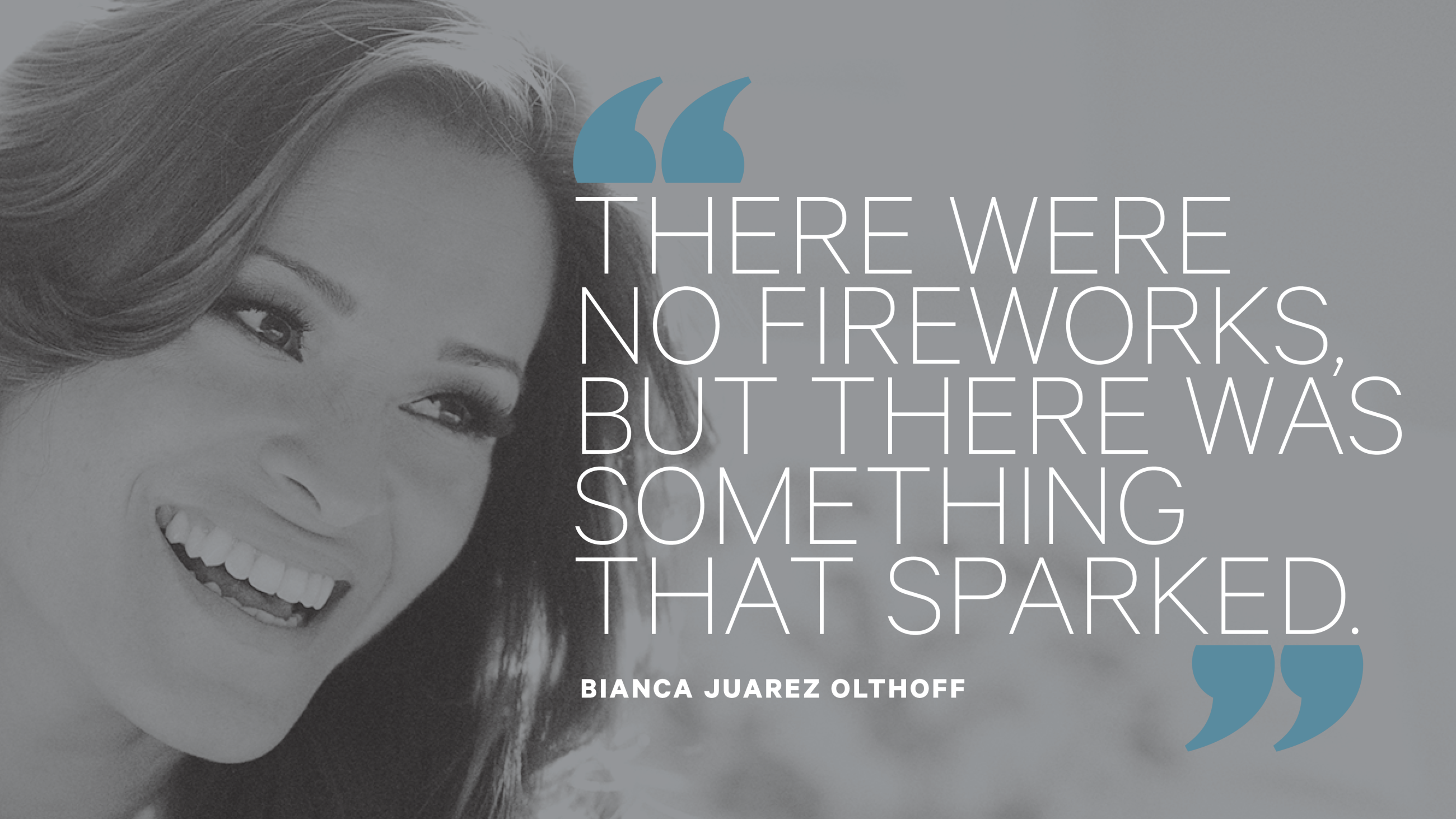Ask Bianca Juarez Olthoff how she defines her calling, and she’ll likely respond with spitfire energy, giving you a colorful list of the many hats she wears: she’s a teacher and herald of God’s Word, a prophetic declarer of “who God is” (but not in a “kooky-crazy way”), a wife and mom, Chief Storyteller for the global anti-trafficking organization A21, Creative Director for Propel Women, and now a newly minted author whose book Play With Fire will be coming out on August 30th. At the heart of everything Olthoff does, though, is her role as a storyteller. More than anything, she wants to tell others about what God is doing for his people around the globe: from her step-kids to her church to the trafficking victims she works to set free.
The stories Olthoff tells are seldom safe, however. As she writes on her website, she sees herself as “a woman who loves God and is committed to speaking truth when it hurts, loving when it’s hard, and living life out loud.” That commitment has taken her to unexpected places, especially in her role in the fight against modern day slavery:
I don’t feel I knew in the beginning why [I gravitated toward the issue of human trafficking], because the only framework that I had for it was that movie Taken with Liam Neeson that came out seven years ago—I vividly remember watching that movie. And then I heard the founder of our organization, Christine Caine, at a Christian conference for leaders, and I remember thinking, “This is so appalling. I cannot believe this. I’m so glad there are good Christians who are giving up their lives to do this.”
Frederick Douglass said, “Conscience cannot stand violence.” And I remember that I lived that out, because when Christine was done, after she spoke and shared stories of survivors of human trafficking, I was moved to tears. And then we walked out and I was like, “Okay, what’s the plan for the day? Where are we going for lunch? When’s the next session?”—and it just escapes your mind. But the issue started haunting me.
What I didn’t realize—why it resonated with me—was that ultimately, I so desperately wanted to be free. I wanted to be free of the girl that lived in the ‘hood. I wanted to be free of the obese girl. I wanted to be free of people who thought I was and the stereotypes they thought I was. And ultimately, though my freedom looked different from those who are trafficked into slavery, we were experiencing captivity. Mine was a spiritual captivity, and theirs is a physical captivity.
The freedom I have found in Christ, I now want others to experience. So yes, my day job is to advocate and help release slaves across the globe. But my spiritual job—this mantle that I carry, this mandate that I have—is that I also want even Christians to be free: free from legalism, free from addiction, free from self-hate. I want that. I know I’ve experienced the transforming work of God in my life, and I want to usher that in for other people.
On this week’s episode of The Calling, join CT managing editor Richard Clark as Olthoff tells him about rapping the books of the Bible, how a maroon Toyota Previa changed her views on prayer, and the moment when God invited her to “break the rules and play with fire.”
Subscribe to The Calling on iTunes.
The Calling is produced by Richard Clark and Cray Allred.
Theme music by Lee Rosevere, used under Creative Commons 4.0.









